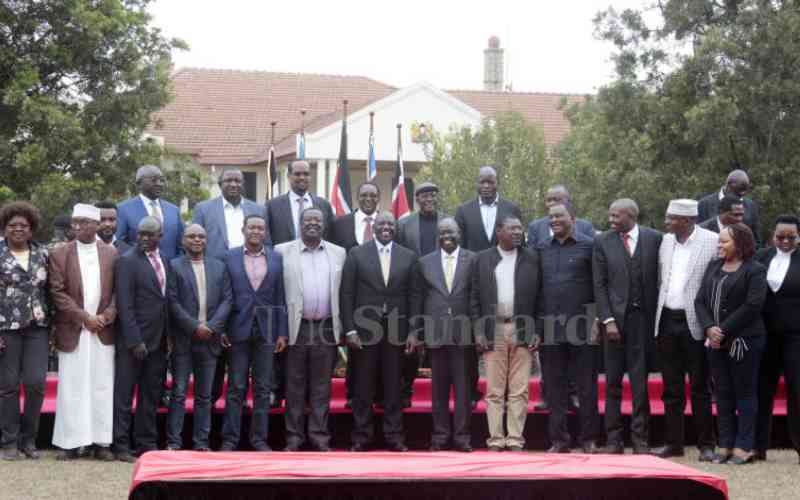×
The Standard e-Paper
Stay Informed, Even Offline

The herculean task of forming a new government has already started ahead of President-elect William Ruto's swearing-in on Tuesday.
Dr Ruto's hands are tied by the pre-election political agreements he signed with Kenya Kwanza Alliance leaders, and he will be expected to appease allies while ensuring regional balance.